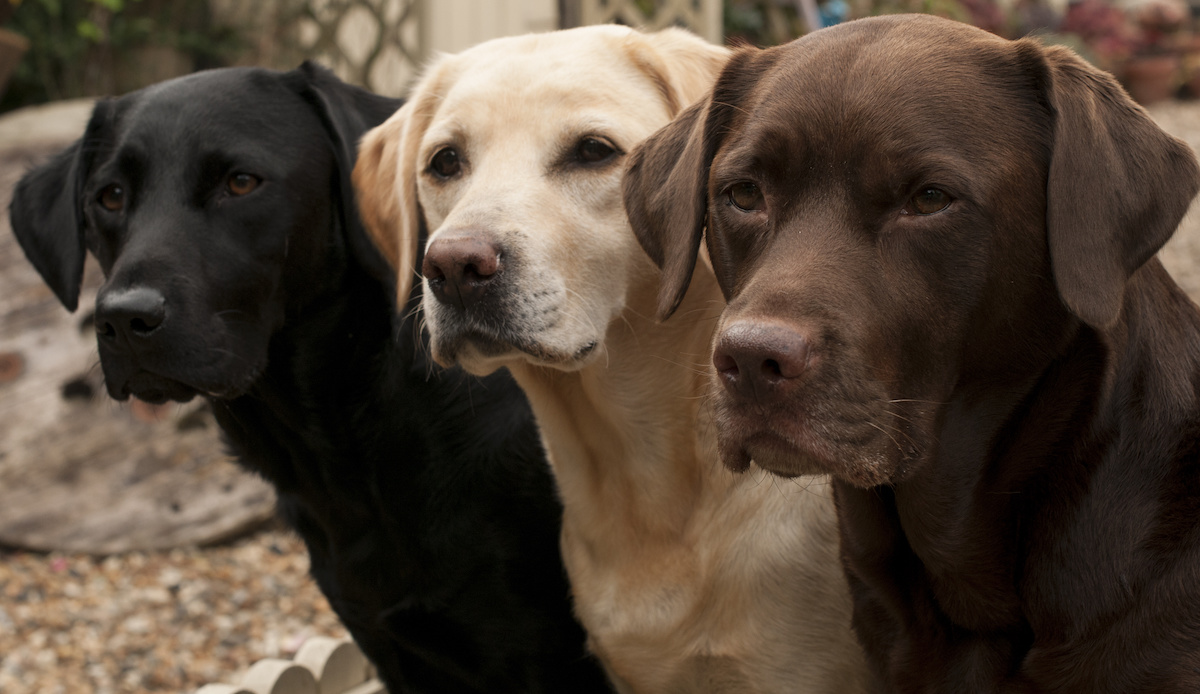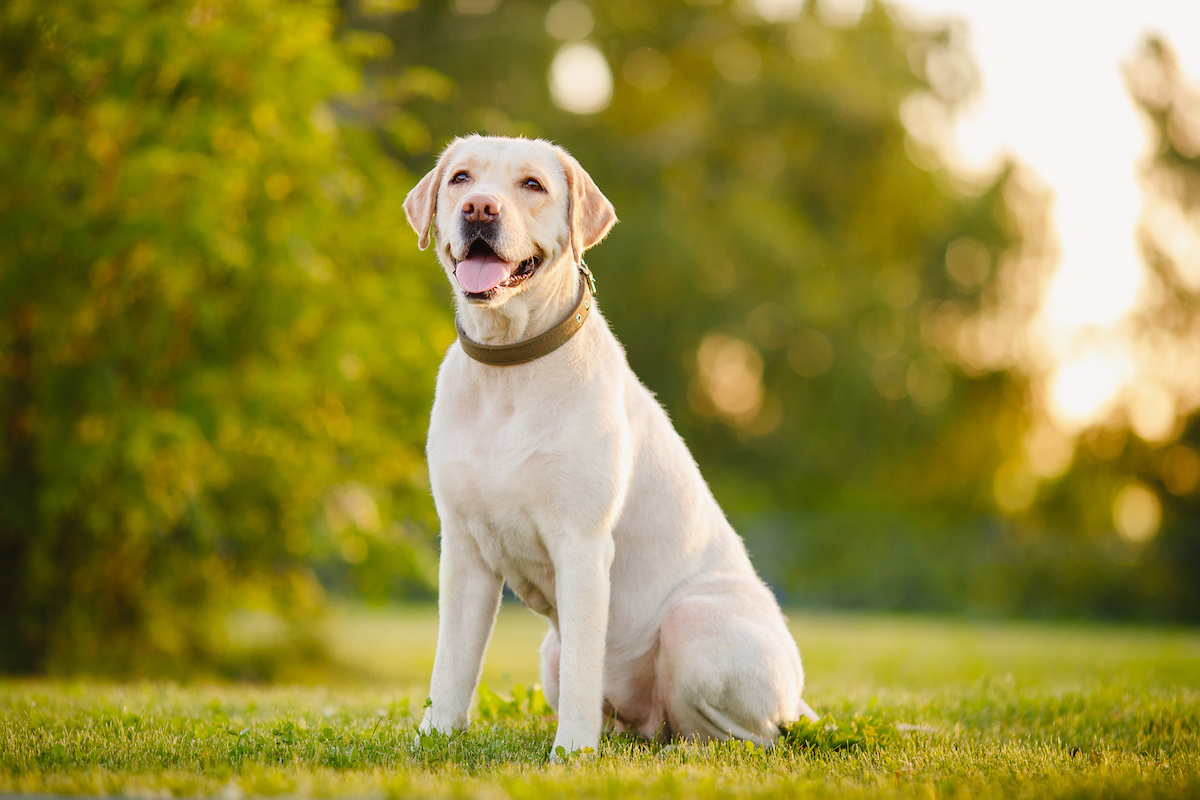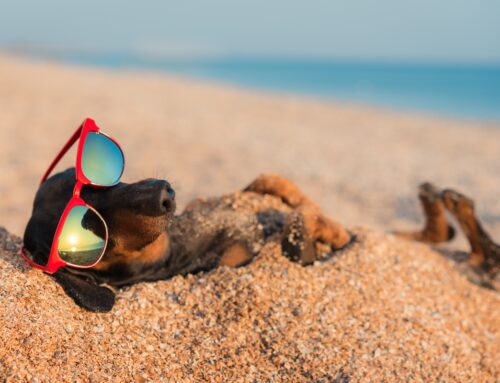Did you know that the Labrador Retriever is the most popular dog breed in America? The AKC determines this breed of dog as the most popular, according to 2020 data. These dogs are very intelligent and adaptable to different situations. Labradors have been used as guide dogs, service dogs and therapy dogs.
What is it that makes the labrador retriever so special? In this breed spotlight, we’ll show you what you need to know about this pup. In the end, maybe you’ll decide that this is the perfect fit for your family!
The History of the Lab
Labradors originate from New Foundland, where they were known as the St. John’s Water Dog. These dogs were bred by fisherman to retrieve ropes and nets for them into their boat. Assisting fishermen and hunters, labs had a knack to retrieve downed waterfowl.
In the 1830s, England began using the St. John’s dogs for hunting land game birds. Roughly twenty years later, Arthur Wingfield set up a kennel specializing in gun dogs. One of his dogs, named “Nous,” sired a litter with a black and yellow dog (the color was not a common one at the time). The pup was given to the Earl of Malmesbury, who named the dog “Labrador” after his Labrador estate in England. Eventually, this became the official breed name for this dog.
The Labrador Retriever is popular throughout the globe, including being recognized in 1903 by the American Kennel Club as a member of the sporting group, and in 1911 by the United Kennel Club as part of the water dog group. In England, the breed was recognized by the Kennel Club in 1903.
Labrador Dog Characteristics
What are the characteristics of a lab? Labs have a short, water-resistant coat that is heavy and straight, which covers a stocky body, broad head and has medium-size ears. They have medium-sized brown eyes and a nose with a black coating. Their tail is short and hangs down. Labradors weigh between 45 and 55 pounds and are about 20-24 inches in height.
Labrador is a breed of dog that is known for its friendly demeanor, their appearance, and its affinity for water, specifically swimming. Today they are companion dogs and were originally bred to retrieve game.
Labrador Retriever Personality
The Labrador retriever is a friendly, energetic, outgoing dog. It’s hard not to love a lab! They are smart and trainable, eager to please. Labs love to play. They need lots of exercise, so you must take them on daily walks and runs. Labs love water and any opportunity to play in a lake or river will enthusiastically take advantage of it. They are a wonderful family dog and are great with children and other pets.
They’re intelligent, beautiful, friendly, and sociable. They’re also one of the best family dogs. They are alert and make great watchdogs, but aren’t aggressive.
With so many great attributes with the lab, it’s no wonder why this is the most popular dog breed in America.
Labs as Working Dogs
Some dogs are better than others when it comes to assisting humans in the workforce. This is surely the case with labs, and you’ll find them helping fellow humans for many different tasks.
Tracking Lost People
Labradors have a great sense of smell, and are very often used for their sense of smell when tracking people in rescue missions. There are tales of labradors being able to find people under piles of rubble, even after weeks had passed.
Tracking lost people with a dog can be a very effective technique, especially when it comes to saving lives. Labs are known to track the smell of humans and pick up the scent of each person. These dogs are trained to search for people that are missing, and labs also work with law enforcement and other government agencies to recover missing people. Tracking lost people can be done in many different ways: sniffing missing person’s food, clothing or anything that has a scent of that person.

Finding Drugs and Explosives
Labradors have a great sense of smell, and are very often used for their sense of smell when finding drugs and explosives. Drug sniffing dogs can often smell things that are over 1 mile away. Their sense of smell is so strong that they can even smell vapors that humans can’t detect.
In fact, drug sniffing dogs can smell the difference between various drugs, and can even smell the difference between various brands of the same drugs.
Seeing Eye Dogs
Not only do labs have a fantastic sense of smell, but they also serve as seeing eye dogs for the blind. The dogs are trained to assist their owners by leading them around, avoiding obstacles in their path, and even running for help.
There are organizations dedicated to getting these dogs to those who need them, which is an amazing service. They act as seeing eye dogs for those who can no longer see, or even for those who are visually impaired.
Seeing eye dogs can even guide visually impaired runners through marathons.
Labradors as Therapy Dogs
Labradors make excellent therapy dogs. They are extremely friendly, very good around children and the elderly, and extremely patient. Labs are capable of providing comfort to people of all ages who have suffered loss. This breed of dog is very calm and patient, which makes them great therapy dogs. They are used to help comfort people with disabilities and to even help comfort people who are terminally ill.
Are Labs Good with Children?
If you’re looking for a dog that is good with kids, you can’t go wrong with the labrador retriever. Labrador retrievers are very playful and love to be with their families. This is why labs make such wonderful family dogs. Not only do they love the family, but they also love to play with the children in the family.
Labs love to be where their family is and will follow the kids from room to room. They love to engage in activities with the kids too, whether it’s lounging while watching TV or playing in the yard.
Many dog owners rely on these dogs for activities such as hunting and companionship. This is especially true when it comes to children. Because of the lab’s incredible temperament, this is the perfect breed if you have kids in the house.
Lab Puppies and Dog Training
Labrador puppies are great for training because they are naturally very eager to please and very curious. They enjoy learning and they are quick to pick up tricks. Labs are also very patient and good-natured and will excel in obedience training because of this.
Meanwhile, lab puppies usually respond very well to clicker training because they enjoy it so much. Clicker training is an effective teaching tool to almost any trick or command, and it is a very gentle and humane method of training. Lab puppies are easy to housetrain and crate train and they do very well in obedience classes, whether from a young age or as an older puppy. Generally, labs are fun to train and both of you will bond during the process.
The average age of social maturity for a Labrador Retriever is 18 months. During the first couple months of life, Labrador puppies are very playful and enjoy playing with their family and with other puppies. But by the time they reach 18 months of age, they are ready for somewhat more structured and disciplined training.
Young Labrador puppies are very active and need a fenced in yard so they can run around and explore. Keep in mind that this breed of dog loves water. If you have water on your property or close access to a lake, this is all the better to keep your lab happy and healthy.
Caring for Your Lab
How do you best care for a labrador retriever? In addition to plenty of exercise, routine checkups and vaccines are important for this breed. You’ll also want to spay or neuter your lab to help prevent accidental pregnancies and even different types of cancer.
In particular, labs may be prone to hip dysplasia, elbow dysplasia and progressive retinal atrophy, which can lead to blindness. Some dogs may also suffer from epilepsy or skin allergies.
You’ll also need to note that if a lab is left alone for long periods, this can lead to destructive behavior or even depression. A lab needs a stimulating lifestyle and a job to do, whether it be fetching the newspaper, a game of tennis, or hunting. With such high intelligence, you’ll need to keep toys on hand for your pup with plenty of love from you.
Schedule a Vet Visit for Your Lab
No matter the age of your pup, we invite you to schedule an appointment for your lab. We love all breeds of dogs, including labs! Contact us today to set up your appointment, keeping your pup happy and healthy for life.






